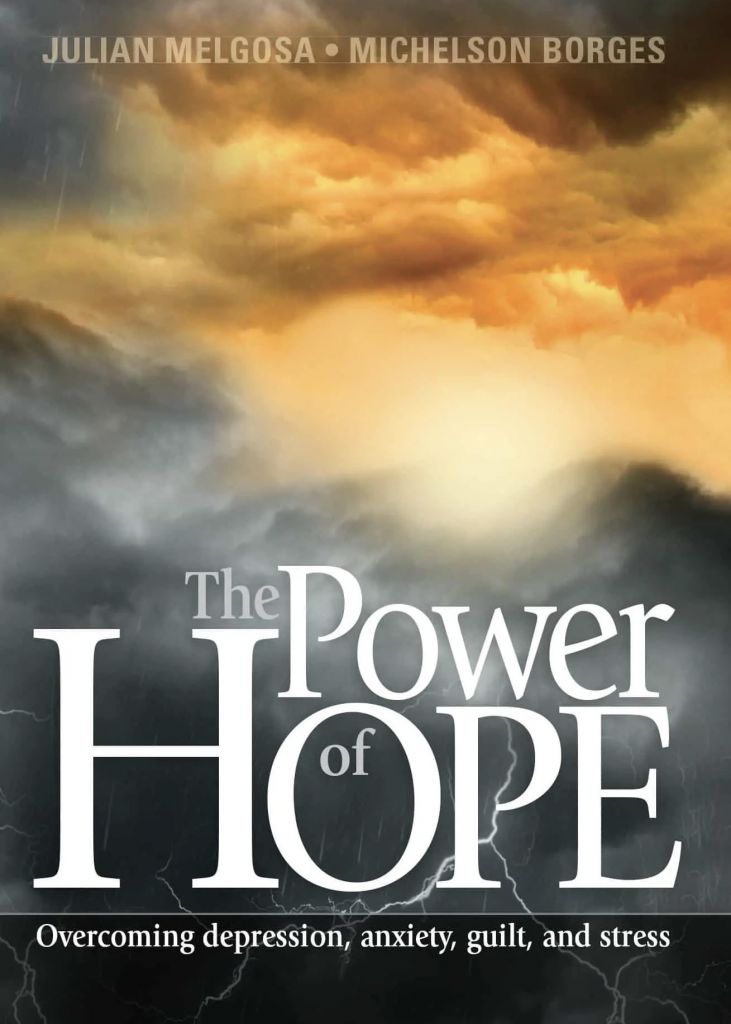For this chapter, we will focus on the eighth tip from the Maker: trust in God and hope. Will this remedy really work? Is it possible that religion can do any real good in the life of those who practice it?
Religious involvement reduces psychological stress, which decreases inflammation and the rate of telomere shortening in the cells. The telomeres are like a biological clock for the cell. They shorten during each cell division, and when they disappear, the cells die, causing degeneration of the organ. This explains why religious-minded people live an average of seven to fourteen years longer.
Therefore, religion is only beneficial if it is practiced, centered on a good relationship with God and with one’s fellow human beings. This leads us to remember James 1:27:
“Religion that God our Father accepts as pure and faultless is this: to look after orphans and widows in their distress and to keep oneself from being polluted by the world.”
True religion is practical and makes us better people here and now. At the same time, it points to a future of hope. Hope is the main emotion in relation to the future. This quality, together with optimism and the ability to maintain good relationships, makes up the best prevention against mental illnesses.
Hope offers a resistance to shock. When a natural disaster or a personal misfortune occurs, those who firmly believe that a solution exists will experience an additional measure of strength to recover from material losses and their own setback. As the psychologist Viktor Frankl explains, almost all of the survivors of the Nazi concentration camps lived through the experience because they maintained their hope of freedom until the end, because they did not accept the idea that this situation was the end of their existence, and they concentrated on the hope of being liberated some day from that infernal situation.
To increase hope
If hope is such an important condition and affects so many areas of our present and future, we should learn ways to promote it. Note this list of tips to help you to strengthen and develop hope:
Develop thoughts filled with hope.
When you look to the future, make an effort to think positively. What you expect at the beginning determines the final outcome of things. When you go through a positive experience, reflect on the positive qualities that made it possible.
Reject negative thoughts.
Many pessimistic thoughts contain mistakes of logic that we have to learn to fight. If your vacations were not good in the past, you cannot conclude that in the future they will always be unpleasant. You should look for specific reasons that can be changed with the purpose of gaining control over past failures and instilling hope for the future.
Think about the past calmly.
Look back on past events without concern. Especially, concentrate on pleasant things and demonstrate gratitude and appreciation for your life experience. When you do this, you will see the future in a happier light, because there are enough blessings in your past to look to the future with hope.
Change your routine.
When despair oppresses you, change your routine in some aspect. Visit a new environment and distract yourself with something different. Invite a friend you have not seen for many years to talk. Listen to new music. And if you do not observe the Sabbath, what about trying that out now? These variations will renew your spirit to the point that you can look to the future with hope.
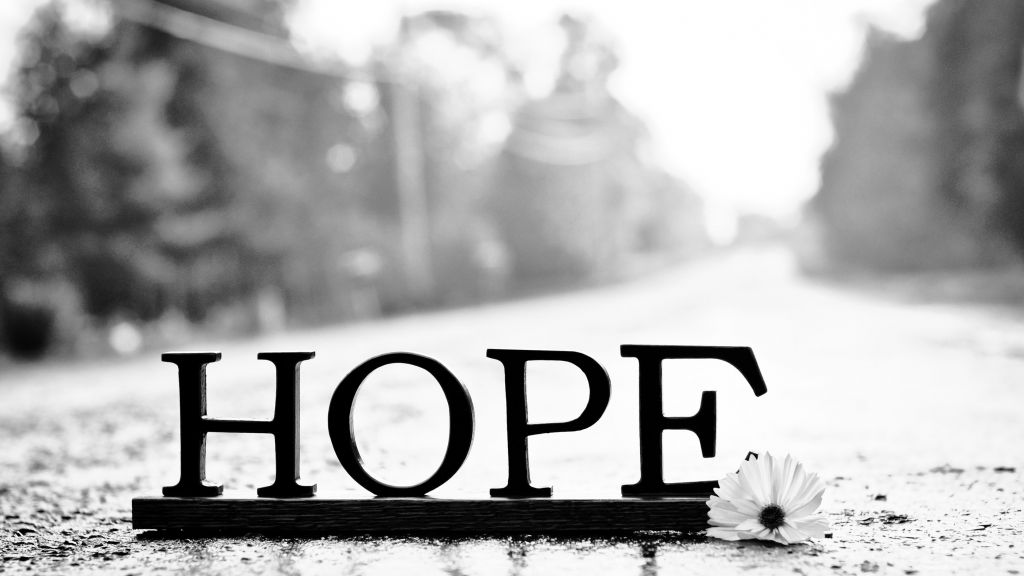
Cultivate optimism.
Hope and optimism are intimately connected. There are always two ways of interpreting the same
fact. For example: (1) “What if this headache is caused by a tumor?” or (2) “This headache will pass.” In the absence of a precise diagnosis, it is better to opt for the second way of thinking. Everything has a positive and negative side. Consider both sides, evaluate the situation, and gather all information available. Then, feel satisfied with the positive side and enjoy the results.
Read and meditate.
Always have good books as companions— books that present subjects of a high standard and with the
most profound knowledge possible. Think on the ideas in these books, and you will find strength to reinvigorate your hope. The Gospels, Psalms, and Proverbs contain inspired texts that have served as support and have strengthened the hope of many people.
Find a good social circle.
Hope is strengthened with the presence of hopeful and positive people. Seek to be in the company of those who have hope, and make friends with these people. Spend your time in the company of good people.
Transmit encouragement and hope to others.
Part of your personal growth consists in reflecting to others your own positive influence. When speaking to someone who is going through a difficult situation, encourage them and help them to flee from despair. Direct their attention to other pleasant or neutral subjects until the storm has passed.
Care for your physical well-being.
Keep yourself in shape with good health and satisfaction; both are conditions that help you to look toward the future with hope. Take care of your health consciously so that your thoughts are filled with hope. Put into practice the tips that you have learned in the previous chapter.
Religious hope
In addition to being a positive attitude for the future and a source of good mental health, hope is a quality that is intimately related to religious faith. The majority of religions are founded on hope, or count on a strong component of faith. For the believer, hope is a gift from God that relates the past to the present and the future, for reaching a happy and definitive end.
Note the most outstanding characteristics of hope in the religious context:
It refers to the hope of salvation.
Religious hope provides the ultimate solution for the problem of suffering. Eternal salvation is reached according to the plan created by God Himself: “The hope of eternal life, which God, who does not lie, promised before the beginning of time” (Titus 1:2).
It is essential for survival.
In a world filled with injustice and suffering, we need to find refuge in the word of the psalmist, who offers hope in God as a means of vital support:
“I remain confident of this: I will see the goodness of the Lord in the land of the living. Wait for the Lord; be strong and take heart and wait for the Lord”
(Psalm 27:13, 14).
Obtaining it requires more than human effort.
In the biblical context, it is not only personal interest and decision but divine intervention that makes possible the great gift of hope. The apostle Paul affirmed that true hope comes freely from God: “Our Lord Jesus Christ himself and God our Father, who loved us and by his grace gave us eternal encouragement and good hope” (2 Thessalonians 2:16).
It provides joy.
True hope is a reason for joy, happiness, and well-being. Paul makes use of this idea in a very clear manner: “Be joyful in hope, patient in affliction, faithful in prayer” (Romans 12:12). “May the God of hope fill you with all joy and peace as you trust in him, so that you may overflow with hope by the power of the Holy Spirit” (Romans 15:13).
It remains until Jesus returns.
Hope, according to the Bible, will culminate in the return of Christ to this world, a fact that indicates the end of fear, injustice, and suffering: “We wait for the blessed hope: the appearing of the glory of our great God and Saviour, Jesus Christ” (Titus 2:13).
It includes the certainty of resurrection.
Christian hope encourages the believer by assuring them that one day they will be resurrected for eternal salvation: “Brothers and sisters, we do not want you to be uninformed about those who sleep in death, so that you do not grieve like the rest of mankind, who have no hope.” “For the Lord himself will come down from heaven, with a loud command, with the voice of the archangel and with the trumpet call of God, and the dead in Christ will rise first” (1 Thessalonians 4:13, 16).
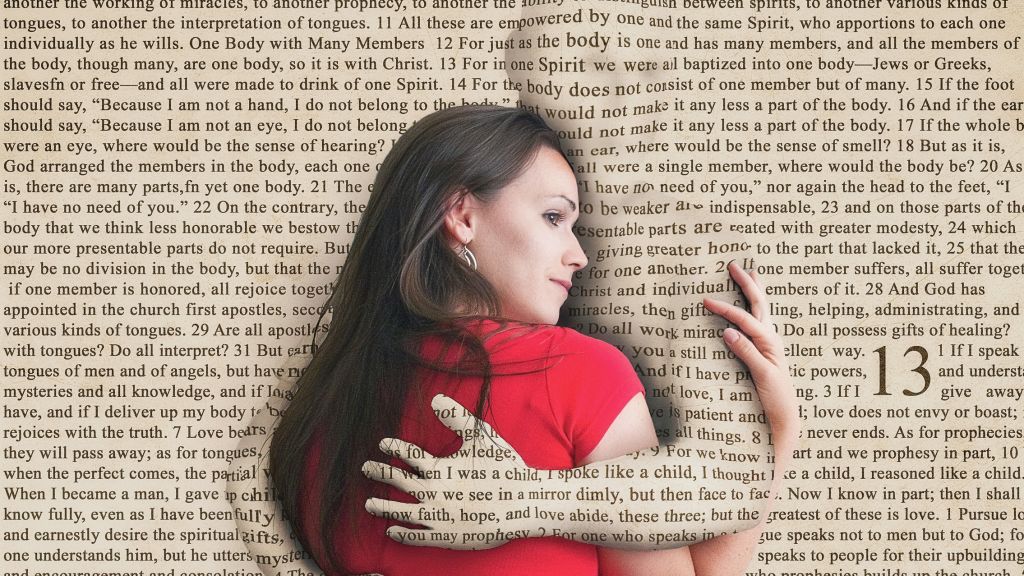
It is centered in a perfect and eternal reward.
“Praise be to the God and Father of our Lord Jesus Christ! In his great mercy, he has given us new birth into a living hope through the resurrection of Jesus Christ from the dead, and into an inheritance that can never perish, spoil or fade. This inheritance is kept in heaven for you” (1 Peter 1:3, 4).
If religious hope is still not part of your life, try this—study and accept the promises of salvation and eternal life. This acceptance will provide changes that will offer more purpose to your life and a much more complete hope.
Restoration
The incontestable fact is that the past cannot be changed. We have observed this throughout this book. The future still does not belong to us. What remains, therefore, is the present and what we do with it.
When Laura decided to study the Bible and learn about God, her study activated a chain reaction that she could not have imagined. Laura’s decision could not change the past, but it would help to write a future of hope for her and for others.
As she progressed through her Bible studies and deepened her communion with Jesus, she began to feel a discomfort in relation to her father. This time, something was different. Before when she thought about him, she felt hate and contempt. How could he have been insensitive to the point of abandoning his little daughter just so he could “enjoy life”? How could he have been so selfish and not consider that this would leave profound marks on her life? If he had not abandoned the family, perhaps Laura’s mother would still be alive. The frightened little girl would not have been raised by a distant aunt, and she would not have immersed herself in books and in her career as a way to suffocate the clamors of her soul. She would not have become such an obstinate, anxious, and intolerant person with the people who surrounded her at work—the only place where she still had some type of social interaction. If her father had not left her home, certainly she would not have developed an aversion to men and today could have a family of her own, a husband, and maybe even children.

Laura could not change any of this, but there was something she could do: forgive her father and reconcile herself with her past. Months prior to discovering what she was learning, this would have been impossible, but now things were different. She was different. Hadn’t the father of the prodigal son received his son back again? What about “prodigal parents” then? Did they deserve forgiveness too? She had to do this—for herself and for him. This would be the first miracle in this chain reaction.
When she opened the door of the nursing home and stepped inside, Laura felt a cold chill creep up her spine. Her heart beat faster, and her hands began to perspire. Would she have the strength to do this? It had been many years since the last time she had attempted to enter this place—although at that time she was unsuccessful.
Slowly, she stepped into a room and walked up to a whitehaired man, slumped over in a wheelchair, looking aimlessly through the window. His back was facing her, and he did not notice her approaching. Laura noticed how thin he was, how his skin seemed to hang on his bones because of the advancing
cancer. He was only a shadow of what he had been.
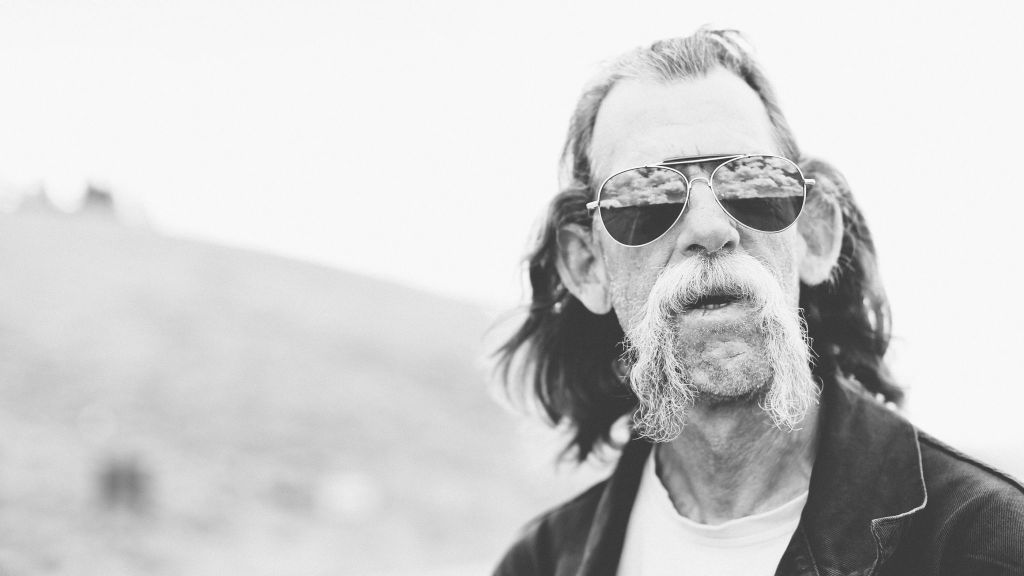
Laura offered a silent prayer, gathered all of her strength and, almost in a whisper, timidly said, “Dad.”
That word, that voice . . . How long had it been since he had heard it?
Carlos struggled to turn the wheelchair around and look directly into the eyes of the woman in front of him.
“Child? Is it really you? You have come?”
Tears began to stream from their eyes at the same time.
“You are not going to believe this! At this exact moment, I was looking to heaven and I thought: ‘God, if you exist, give me proof of this. Please, bring my daughter here before I die. I need to ask her to forgive me, I need to . . .’ ” His voice quivered. The man who had once been known as Big Carlos now seemed as though he were a defenseless child. The “prodigal parent” was humiliated, ragged, destroyed. He had squandered everything and had lost what was most precious.
What would my heavenly Father do in my place? Laura thought. And she waited no longer. Quickly closing the distance that separated them, she warmly embraced her father, lingering as tears flowed down her cheeks.
“Dad, God exists, and He just answered your prayer. I forgive you.”
The second miracle.
When Laura arrived at work on Monday morning, everyone noticed that something was different. To begin with, she arrived at the office smiling and greeted everyone with “Good morning.” Then she began to call her employees one by one into her office.
“Have a seat, Paul. Is everything OK with you?”
Paul seated himself slowly in the chair in front of Laura’s desk, evaluating each expression on her face. Is she sick? Has she gone totally crazy? he wondered.
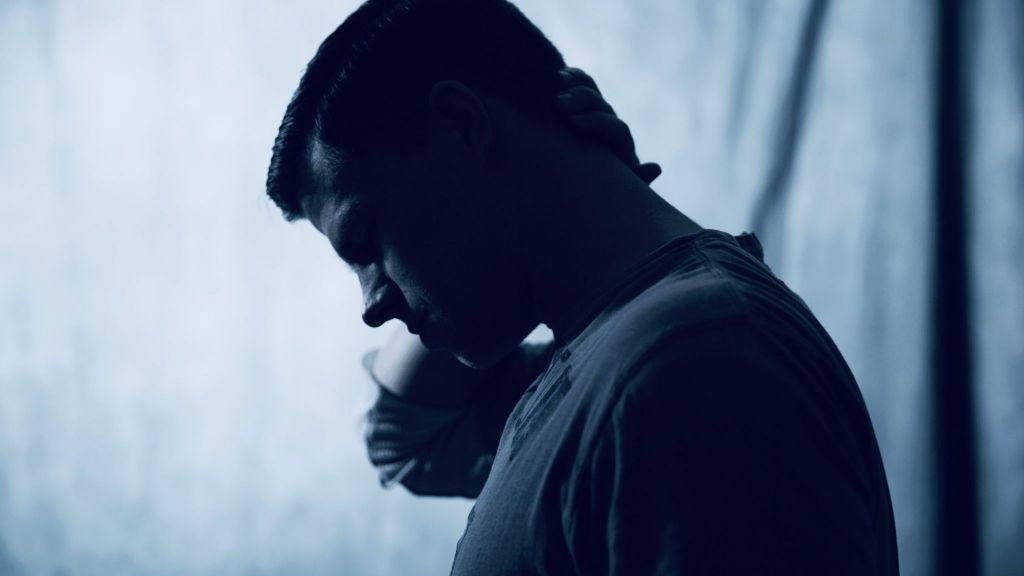
“I know that you and everyone else must be thinking that this is all strange. So I decided to talk to each one individually. Not as your supervisor, but as a fellow human being.”
Paul sat in silence, almost without blinking.
“First of all, I need to ask for your forgiveness. In the past several months, because of my anxiety and focusing only on the company’s success, I ended up mistreating and overloading all of you. I think that I made your life a living hell.”
Paul struggled not to nod his head in agreement.
“But something wonderful has happened in my life that has completely changed my perspective. It is going to seem strange, but it is a simple truth. I cannot say that it was anything else: I had a personal encounter with Jesus. He forgave me, helped me to forgive my father, and allowed me to look toward the future with hope.”
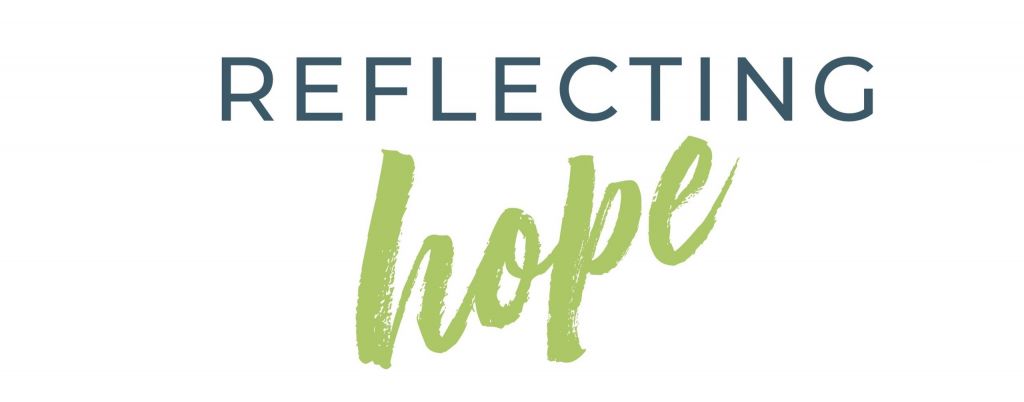
Laura picked up her Bible with both hands and continued: “It was by studying this book that I adjusted my focus, and this helped me to see that I could become a different person. People are infinitely more important than things and numbers.”
Looking directly into the eyes of her employee, she asked, “Paul, can you forgive me? Please forgive me for all the stress that I caused you. Certainly this must have affected your health and your family, right? Can you forgive me?”
Swallowing hard, he answered hesitantly, “Yes, Laura, I can. I forgive you.”
Laura got up, thanked Paul, and concluded, “I promise that from now on everything will be different.”
The third miracle.
Paul left his supervisor’s office still not understanding exactly what had happened, but he felt better. He felt relieved. It was almost time to go home. Back at his desk, he grabbed a sheet of paper and began to jot down a few words. Then he slipped the sheet into an envelope, placed it into the pocket of his suit jacket, and went home.
“Hi, dear! You look really beautiful today!” he said, hugging his wife tightly—something he had not done for a long time. Kneeling in front of his son, he said, “Put on your shorts. In a little bit we are going to play ball in the backyard.”
Looking at his little daughter, he coaxed her, “Come here, sweetie. I have something for you.”
Paul took out an envelope from his jacket and gave it to Isabel. Imagining that it might be another letter from the school telling about her tantrums, she opened it with caution. Inside, there was a sheet of paper with the words: “I love you, sweetie.”
With her eyes filled with tears, she clung to her father’s neck, as he firmly but softly stated to his family, “We are in need of God in this house. We are in need of love.”
The fourth miracle.

The content of this post is taken from The Power of Hope — Overcoming depression, anxiety, guilt, and stress, authored by Julián Melgosa and Michelson Borges.
Julián Melgosa holds a doctorate in educational psychology from Andrews University. A member of the British Psychological Society, he was a university professor and is the author of various articles and books in the area of emotional health.
Michelson Borges is a journalist with a master’s in theology from Brazil Adventist University. He is the editor of “Vida e Saúde” (Life and Health magazine), is a seminar presenter and has authored books on media, science and religion.



